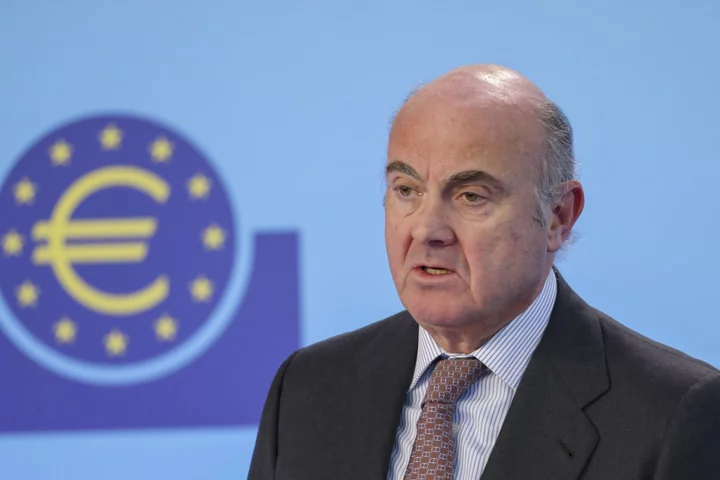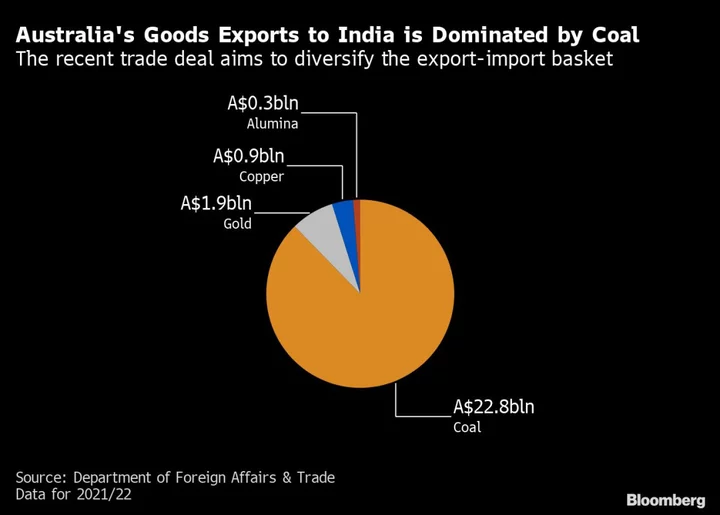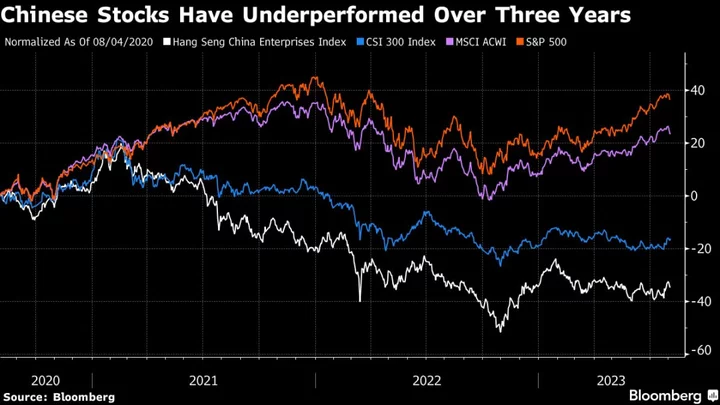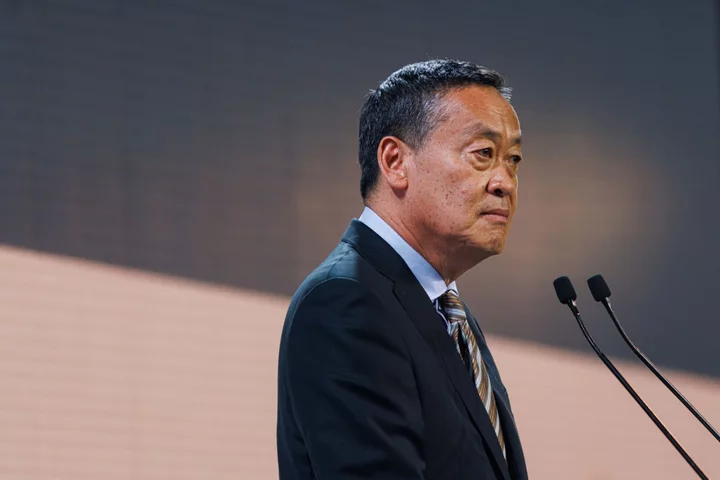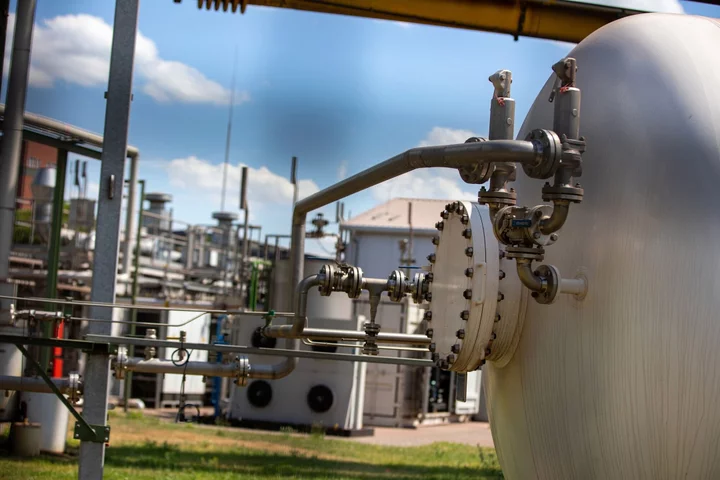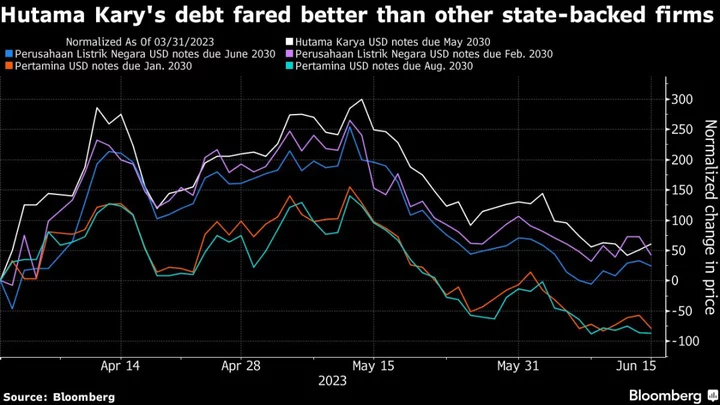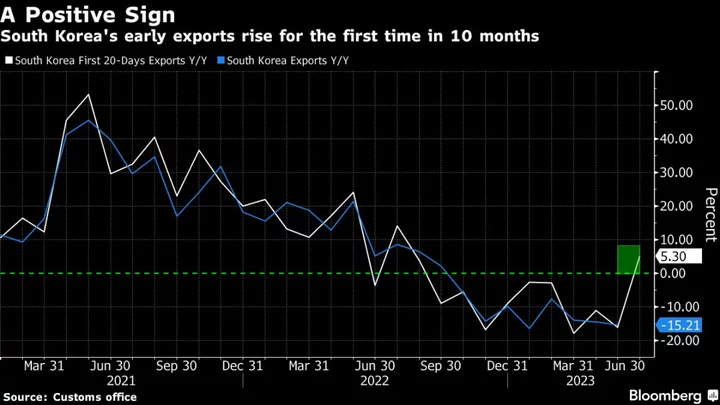European Central Bank Vice President Luis de Guindos said there are risks to the current growth outlook and that the euro-area economy may perform worse than currently expected.
Inflation, slower global momentum and monetary policy itself mean the region probably stagnated in the second half of 2023, with the economy likely to perform similarly this quarter as it did in the three months through September, Guindos said at an event in S’Agaro, Spain, on Friday.
“Risks are to the downside,” he said. “If there are deviations, economic growth could come in below our projections.”
The latest ECB forecasts — published in September — see the euro area grow 0.7% this year and 1% in 2024. That’s above the median estimate of economists in a Bloomberg survey. Updated figures are due when policymakers set interest rates in Frankfurt on Dec. 14.
The central bank is widely expected to have reached the peak of its tightening cycle even though officials haven’t ruled out that more hiking might be necessary to get inflation under control. President Christine Lagarde said earlier on Friday that officials can now “observe very attentively” how the economy reacts to the 450 basis points of rate increases enacted since mid-2022.
Business surveys by S&P Global this week revealed sluggish euro-area growth in November, though price pressures also remained high — leaving in the ECB in an uncomfortable spot. Investors currently expect a first rate cut as soon as April, though most officials have refused to engage in discussions on when borrowing costs can be lowered.
Guindos only reiterated that rates at the current level — if maintained for long enough — will allow inflation to return to the institution’s 2% price goal.

